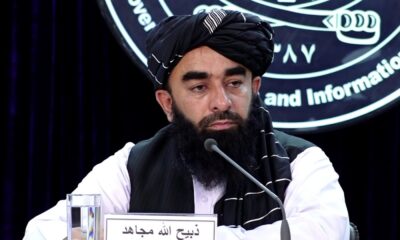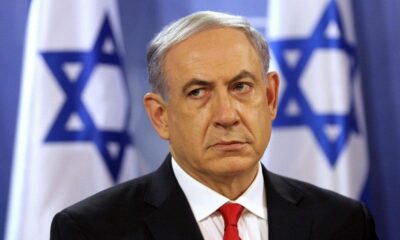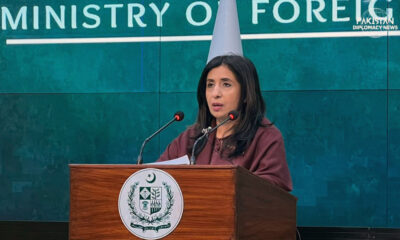Latest News
Khalilzad responds to McCaul’s draft resolution, says Doha agreement claim is ‘flatly untrue’
Khalilzad said the draft resolution states he “baselessly asserted the Taliban would honor their commitments and respect basic human rights.”

Former US special envoy for Afghanistan, Zalmay Khalilzad said in a post on X early Thursday that a claim in House Foreign Affairs Chairman Michael McCaul’s draft resolution on him having said he “baselessly asserted the Taliban (IEA) would honor commitments” was untrue.
Khalilzad said the draft resolution states he “baselessly asserted the Taliban would honor their commitments and respect basic human rights.”
“This statement is flatly untrue. I never made such a statement. I am surprised that such a claim would be made without documentation - ‘baselessly,’ so to speak,” he said.
On Wednesday, House Republicans voted to censure President Joe Biden and Vice President Kamala Harris for the disastrous U.S. withdrawal from Afghanistan, capping their work in Washington with legislation that carried no legal weight but drove a political point ahead of the November elections.
The resolution condemned Biden, Harris and other officials in the administration for “decision-making and execution failures throughout the withdrawal from Afghanistan” and blamed them for the deaths of 13 U.S. service members who were killed by a suicide bomber at Kabul’s airport during the final days of the evacuation.
With regards to the Doha agreement, the resolution stated: “Whereas, in 2021, under the Biden-Harris administration, Special Representative for Afghanistan Reconciliation, Zalmay Khalilzad, baselessly asserted the Taliban would honor their commitments and respect basic human rights.”
Khalilzad responded by saying in his post on X: “The Doha Agreement that I helped negotiate under President Trump did not deal with human rights.
“It dealt with the terms for the safe military withdrawal including no attacks on US forces, and not allowing terrorists, individuals or groups, including al-Qaida, to use Afghanistan soil to threaten the security of the United States and our allies.
“The Taliban (IEA) had agreed that a new government for Afghanistan - and presumably its human right policies - would subsequently and separately be negotiated between them, the (former) Afghan government, and other Afghans.
“Some such negotiations took place, but no agreements were arrived at before the completion of our withdrawal,” Khalilzad said.
He went on to state that Biden decided not to condition the US withdrawal on a political agreement among Afghans, fearing a return to Islamic Emirate attacks against US forces if Intra-Afghan negotiations dragged on.
“Aside from adding four months to the withdrawal timeline, the Biden Administration did not make any other changes in the Doha Agreement,” he said.
“In addition to not having made any statement about the Taliban (IEA) honoring commitments on human rights, in my appearances before various congressional committees, whenever asked whether I trusted the Taliban (IEA) to honor their commitments in regard to military matters and terrorism, my reply invariably was that we were talking about international relations, an arena in which no one can be trusted, and least of all the Taliban (IEA).
“I emphasized that it was not about trust. The agreement as negotiated was condition-based, not trust-based, and delivering on our commitments in the agreement was linked to the Taliban’s (IEA) delivery on its commitments, which would need to be continuously evaluated and verified.
“I did report that the Taliban (IEA) were - up to the time of my appearances - honoring their commitment not to attack US forces and needed to do more to meet their obligation on terrorism.
“Indeed, several elements of the agreement remain unfulfilled by us because the Taliban (IEA) have not fulfilled some of their commitments,” he said.
Khalilzad concluded by saying: “Undeniably, the final phase of the withdrawal was a disaster.
“The main reasons for this were a.) poor intelligence (we did not foresee that the Afghan government would simply collapse before we had even departed or that its military would essentially dissolve and b.) our own inadequate military planning and execution in light of those unexpected developments.
“Our soldiers performed heroically under the circumstances, which had devolved into chaos in and around Kabul Airport,” he said.
Latest News
Mujahid says IEA stands with media outlets
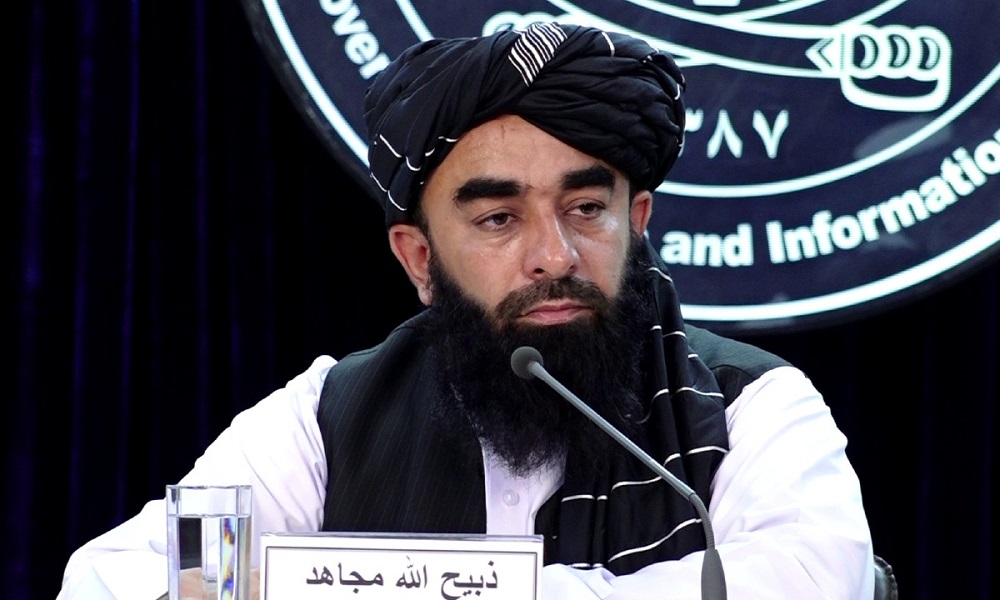
The Islamic Emirate’s spokesman Zabihullah Mujahid says the acting government is committed to supporting media outlets and they can operate within the framework of Islamic Sharia and national interests.
Marking World Television Day on Thursday, November 21, Mujahid said: “The Islamic Emirate of Afghanistan supports the media in general. Media can operate within the framework of Islamic Sharia and national interests.”
“As far as we are able, we cooperate with the media and the Afghan media currently have publications and they are broadcasting their publications well,” he added.
The United Nations General Assembly named November 21 as World Television Day in 1996.
“Since IEA’s takeover, of 184 national and local televisions, 57 television stations were shut down due to economic problems,” said Hojatullah Mujadadi, the head of Afghanistan Free Journalists' Association (AFJU).
Currently, about 370 visual, audio and print media are active in the country.
Latest News
Baradar says water crisis has negatively impacted relations between nations
Baradar expressed regret that although Afghanistan has vast water resources, effective and professional management has not been carried out in this area.

Deputy Prime Minister for Economic Affairs, Mullah Abdul Ghani Baradar, said on Thursday that the ongoing water crisis in the country has not only made neighboring countries face the problem of water scarcity, but it has also had a negative impact on political and economic relations between Afghanistan and these countries.
Speaking at a seminar held by the Ministry of Energy and Water, Baradar said that although water is a renewable natural resource, the shortage of water due to climate change, the increase in the level of water pollution, the growing demand of the people and its excessive consumption affects the country.
He expressed regret that although Afghanistan has vast water resources, effective and professional management has not been carried out in this area.
“It is now the responsibility of the Islamic Emirate of Afghanistan to fulfill its national duty for the optimal management of the country’s water resource,” Baradar said.
“With firm determination, we aim to use all available means to ensure sustainable development in water management.”
Last month, the United Nations Children's Fund (UNICEF) also warned that Afghanistan is experiencing a severe water crisis, and if no action is taken, Kabul’s underground water resources could be depleted by 2030.
In a message on X, UNICEF reported that Roza Otunbayeva, head of the United Nations Assistance Mission in Afghanistan (UNAMA), and Tajudeen Oyewale, head of UNICEF Afghanistan, visited a Kabul district to assess the city's water supply network.
Both officials expressed concern over the worsening water shortage problem in the capital.
"Water is life," UNICEF stated, emphasizing that rapid urbanization and climate change are accelerating the depletion of groundwater in Kabul.
“If we don't act now, we cannot stop this process."
The rapid population growth, unplanned construction of high-rise buildings, urban development without proper planning, and the excessive use of underground water resources are major factors contributing to the decline in both the quantity and quality of groundwater in Kabul.
Although Kabul has faced water shortages for years, the crisis has become more severe in recent times.
However, the Islamic Emirate is making concerted efforts to resolve the problem and thwart the crisis.
Three weeks ago, the office of the Deputy Prime Minister for Economic Affairs, said in a statement that plans to construct a total of 355 water reservoirs across the country were being implemented.
According to the statement, of the 355 dams, a number of them have already been completed and inaugurated while others are under construction.
Of these reservoirs, 138 are being constructed by the Ministry of Agriculture, Irrigation, and Livestock; 117 by the Ministry of Water and Energy; and 100 by the Ministry of Rural Rehabilitation and Development.
All of these dams are being funded by the Islamic Emirate of Afghanistan, the statement read.
The reservoirs are being constructed in numerous provinces to manage rainwater, prevent flooding, strengthen groundwater levels and for use by communities.
Iran’s water share
Late last year, Iranian Energy Minister Ali Akbar Mehrabian warned that if Afghanistan does not ensure Tehran receives its rightful amount of water from Helmand River, Iran will use legal and international means to resolve the problem.
Mehrabian stressed that Helmand River water is Iran's indisputable right, and that Iran takes the matter seriously.
“Water right is Iran's right and it is necessary to release it. Ensuring water rights is not optional, but it is mandatory based on the international treaty of 1351. Pursuing this matter is Iran's absolute right and we will not fail in this regard. The recent rains should cause the release of our water, and if not, we will take serious action based on international laws,” stressed Mehrabian.
At the time, the Islamic Emirate said it was committed to providing Iran with water from the Helmand River but due to drought, there is not enough water in the river to give Iran its share.
The Helmand River Water Treaty was signed between Afghanistan and Iran in 1973, according to which Iran has the right to receive 850 million cubic meters of water from Afghanistan annually.
Latest News
Pakistan rejects suggestion of appointing a new special envoy for Afghanistan
Islamabad however continues to accuse Afghanistan of providing safe havens to militant groups that target Pakistan, including Tehreek-e-Taliban Pakistan (TTP).
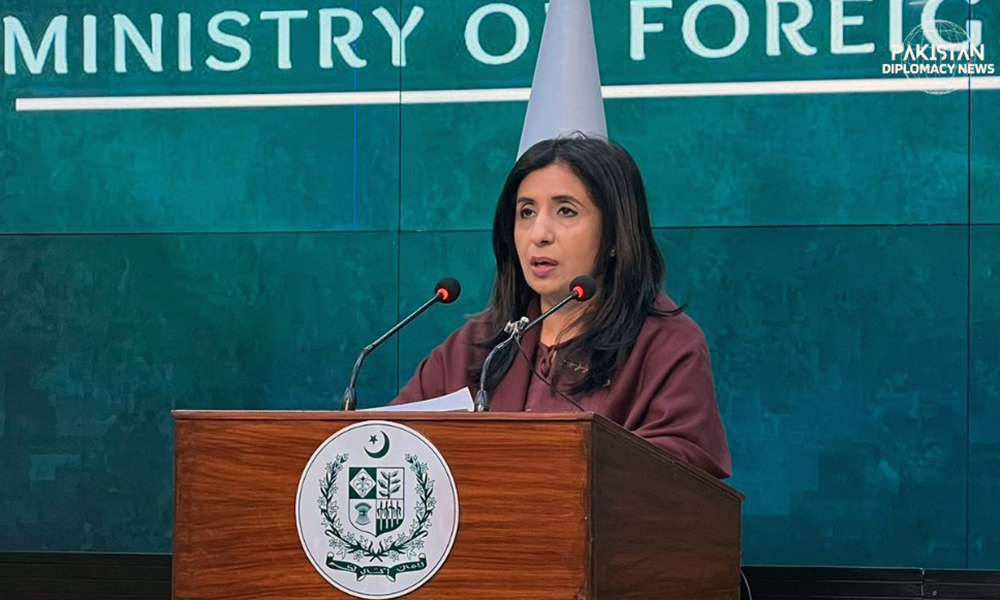
Pakistan’s Foreign Ministry Spokesperson Mumtaz Zahra Baloch has dismissed rumors that Islamabad is considering appointing a new special representative for Afghanistan.
Baloch said on Thursday that there was no truth in these reports but that special envoys for Afghanistan from Russia and China had recently visited Pakistan and met with officials.
In August, Pakistan dismissed its special envoy to Afghanistan, Asif Durrani, and has not yet appointed a replacement.
Addressing a weekly briefing on Thursday, Baloch also raised the issue of militant groups in Afghanistan.
She also announced the latest data on Afghan refugees and said so far this year, Pakistan has expelled almost 800,000 undocumented migrants from the neighboring country.
She said the process still continues to ensure a "successful and smooth return" of illegal Afghan nationals.
"Since November 2023 to October 2024, so far 757,008 undocumented Afghans were sent back to Afghanistan," Baloch said, adding that the figure also includes those who returned voluntarily.
According to UN figures, some 1.3 million Afghans are registered refugees in Pakistan, while another 880,000 have legal status to stay.
Pakistan started its crackdown on all foreigners living in the country illegally late last year.
According to Islamabad, the rise in militant attacks led them to making this decision.
Islamabad however continues to accuse Afghanistan of providing safe havens to militant groups that target Pakistan, including Tehreek-e-Taliban Pakistan (TTP).
This claim has repeatedly been rejected by the Islamic Emirate, who state they will not allow any group to use Afghan soil against another country.
-

 Sport5 days ago
Sport5 days agoFIFA unveils Innovative Club World Cup Trophy ahead of new tournament in 2025
-
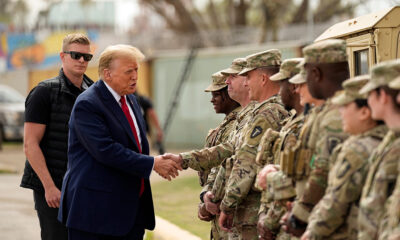
 Latest News5 days ago
Latest News5 days agoTrump team compiling list of military officers responsible for US withdrawal from Afghanistan
-
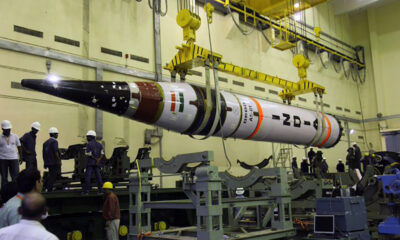
 Regional5 days ago
Regional5 days agoIndia’s successful test of hypersonic missile puts it among elite group
-

 Latest News5 days ago
Latest News5 days agoCanada sent 19 failed asylum seekers back to Afghanistan last year
-

 Sport4 days ago
Sport4 days agoAbu Dhabi’s thrilling T10 tournament just days away
-

 World4 days ago
World4 days agoBiden allows Ukraine to use US arms to strike inside Russia
-

 Sport4 days ago
Sport4 days agoAfghanistan beat UAE by 169 runs in U19 tri-series
-

 Business5 days ago
Business5 days agoMullah Baradar inaugurates a blanket factory in Kabul




